Both the Chevrolet Traverse and Ford Explorer are American-built crossover SUVs made to haul a small family comfortably. While these vehicles directly compete against each other, their platforms are very different in terms of philosophy. The Explorer uses a rear-wheel drive (RWD) bias layout, while the Traverse uses a front-wheel drive (FWD) bias layout. They both use turbocharged engines, but their performance is worlds apart.
Related: Rivian R1T delivers on this EV feature that Tesla forgot
Chevrolet
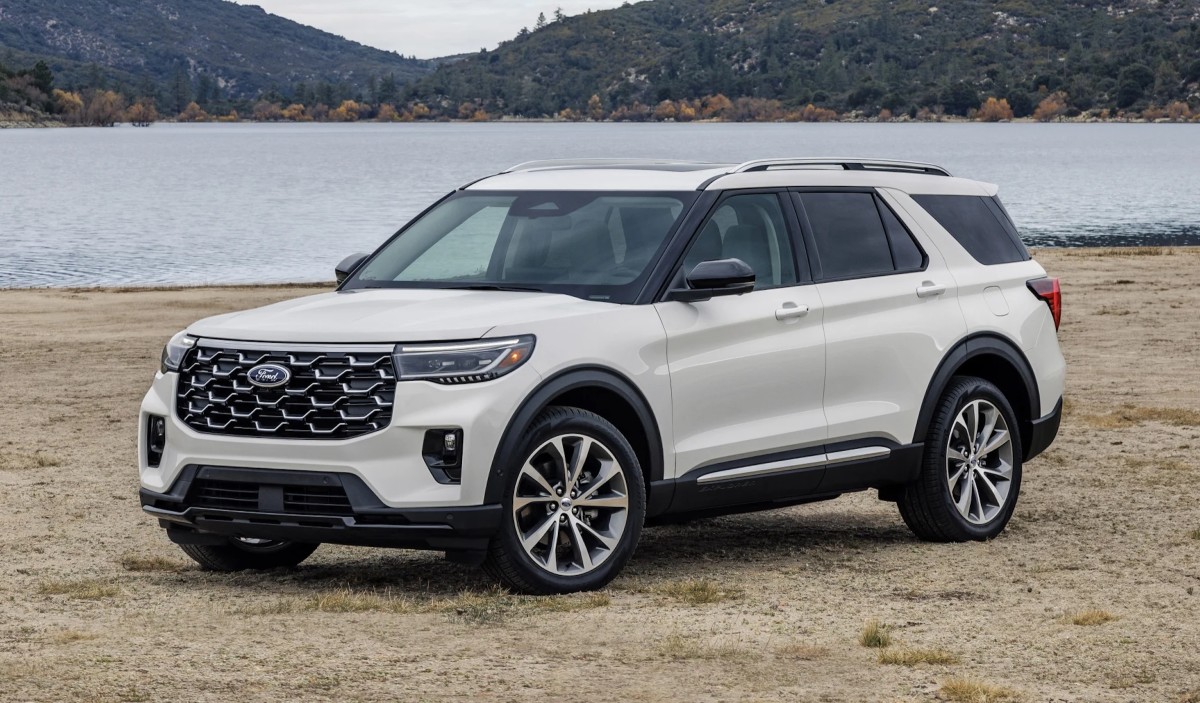
Ford
Additional competitors consist of the old Dodge Durango, the Toyota Highlander and Grand Highlander, Nissan Pathfinder, Honda Pilot, and Kia Telluride among others. In 2024, Chevrolet Traverse sales totaled just under 106,00 units sold in the United States. That same year, the Ford Explorer sold a total of 194,094 units in the United States, making it the best-selling three-row SUV in the country,
Interestingly, both SUVs have undergone major changes over the past several months, thanks to fairly new powertrains, tech, updated designs, and simplified trims. They are also fairly close in price, but that’s where the notable similarities end.
The 2025 Ford Explorer starts at $39,755
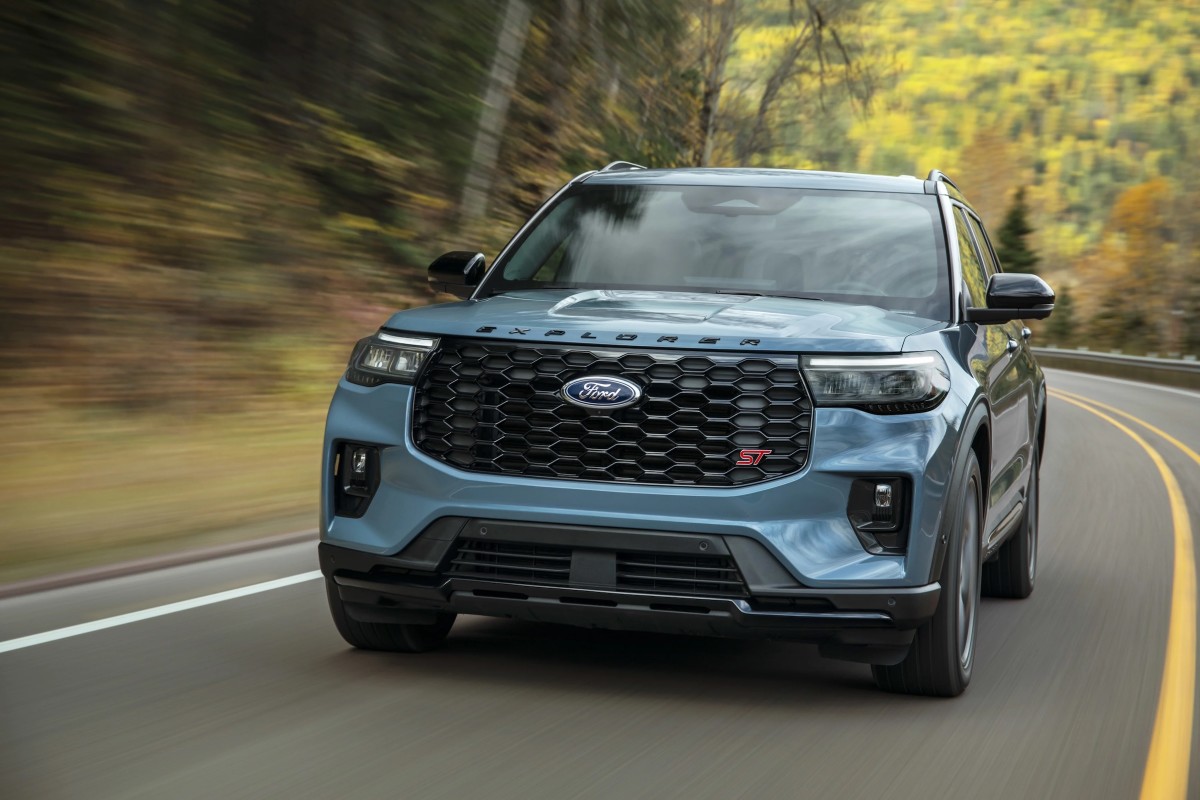
Ford
Related: What is the Sony Honda Mobility Afeela 1?
The Ford Explorer dates back to 1991 and is one of the best selling SUVs of all time. It has gone through a number of changes, including moving away from a truck-like layout to what is essentially a car-like layout. Now, it’s a bit of both. As some might home from such a purebred American creation, the Explorer is assembled at Ford’s Chicago assembly plant.
There are four Explorer trims: the $39,755 Active trim, the $44,615 ST-Trim, the $52,250 Platinum, and the $54,260 ST. RWD is standard on the lower trims, and AWD is optional on the higher trims. The base engine is a turbocharged 2.3-liter four-cylinder that produces 300 horsepower and 310 lb-ft of torque through a 10-speed automatic transmission.
A twin-turbocharged 3.0-liter V6 that makes 400 hp and 415 lb-ft of torque through the same 10-speed automatic transmission is optional on the Platinum and standard on the ST. The rear-drive 2.3-liter turbo engine gets an EPA-estimated 21 mpg city and 28 mpg highway. The V6 gets an EPA-estimated 18 mpg city and 25 highway. AWD models are rated slightly lower.
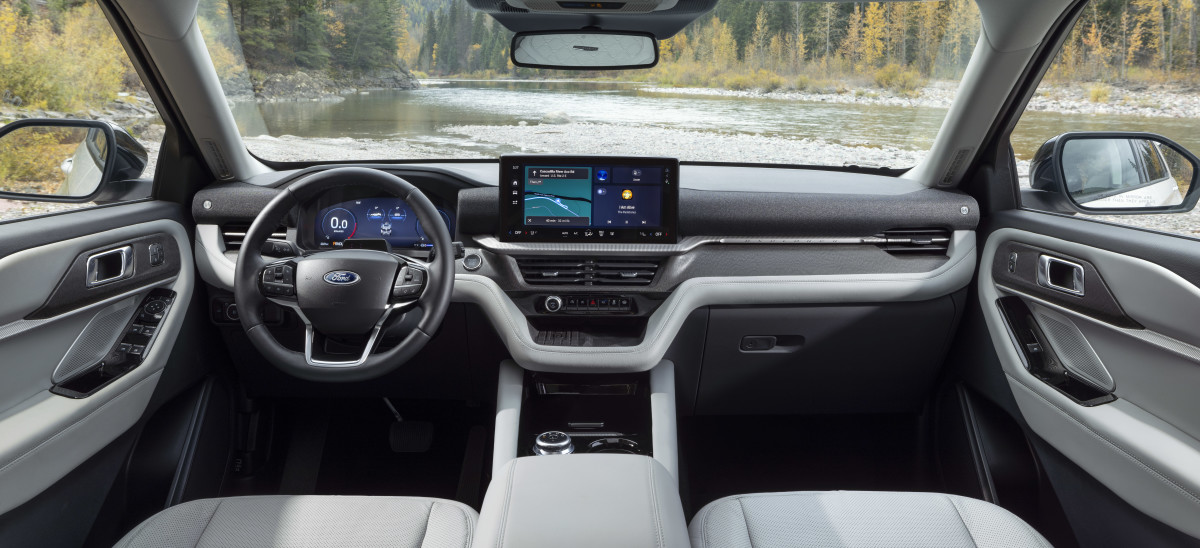
Ford
The Explorer sports plenty of standard features
Even with its comparatively low base MSRP, Ford imbues the Explorer with enough features to keep its passengers happy on any trip.
- 10-way power, heated driver’s seat
- 4-way power, heated passenger seat
- Ford Digital Experience infotainment system
- 13.2-inch LCD touchscreen
- 12.3-inch color LCD digital cluster
- Apple CarPlay and Android Auto wireless compatibility
- Alexa Built-in
- 8 USB ports – including two for third-row passengers
- Three 12-volt powerpoints
- Ford Co-Pilot 360 Assist+8
- FordPass Connect embedded mode
- Class III trailer tow package (5,000-lbs max)
- Rear-wheel drive (4WD available)
- Recalibrated 10-speed automatic transmission
- Power liftgate
- LED headlamps
The Platinum I recently sampled was beautifully packaged and offered Lincoln-level luxury throughout. It also had a fire-breathing twin-turbo V6, making it more of a sports wagon than an SUV.
Driving a Ford Explorer does, however, force you to repeatedly tell people that “no, this is not a police vehicle,” especially when traffic slows down around you.
Related: Meet the ultimate Audi RS 6 Avant: Only 85 are coming to the U.S.
The 2025 Chevrolet Traverse starts at $37,600
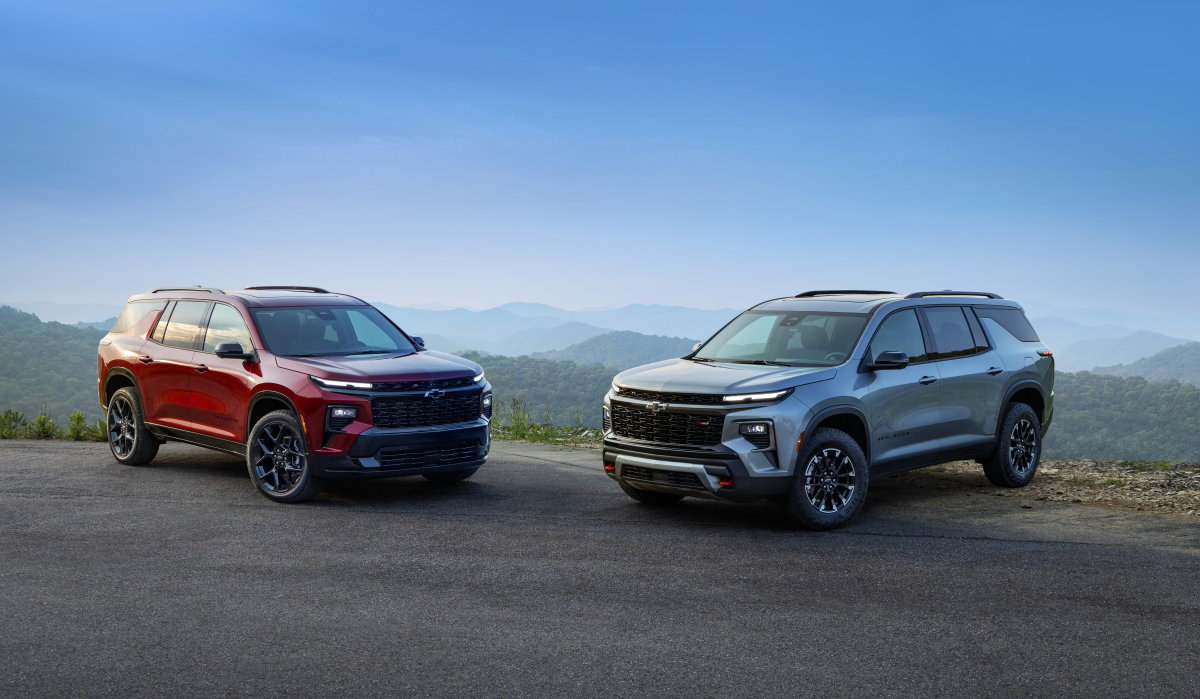
Chevy
The much newer Chevrolet Traverse is also made stateside at the GM Lansing Delta Township plant in Michigan. Now in its third generation, it’s grown to be one of the largest vehicles in its class.
The GM VSS-S platform it’s based on is modular, and shares many of the same components as a variety of other GM vehicles, even smaller ones. There are four Chevrolet Traverse trims: the $37,600 LS, the $40,000 LT, the $46,400 Z71, and the $54,200 RS.
The 2025 Chevrolet Traverse’s power comes from a turbocharged 2.5-liter four-cylinder that makes 328 hp and 326 lb-ft of torque. With FWD, it gets an EPA-estimated 20 mpg city and 27 mpg highway, while AWD models get 19 mpg city and 24 mpg highway.

Chevrolet
The Traverse’s standard features list is a little shorter
-
17.7″ LCD touchscreen with Google built-in
- 11-inch-diagonal configurable driver information center
- A column-mounted electronic transmission shifter
- Wireless Apple CarPlay and Android Auto
- 8-passenger seating
- Side bicyclist alert
- HD rear vision
- Lane change Alert with side blind zone
- Class III tow “trailering package” (5,000-lbs max)
- Rear cross traffic alert with blind zone
- FWD (AWD optional)
- Auto-sense power liftgate
- LED headlights
Related: Tesla offering insane perks as sales dry up
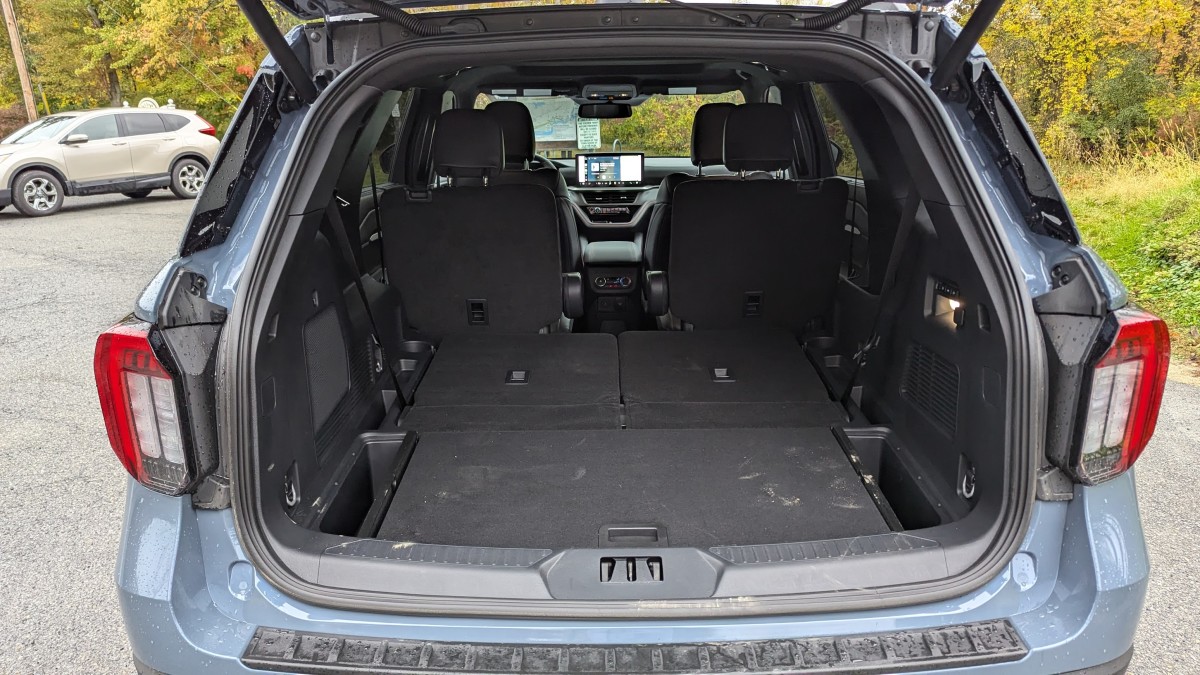
Dave McQuilling/AutoBlog
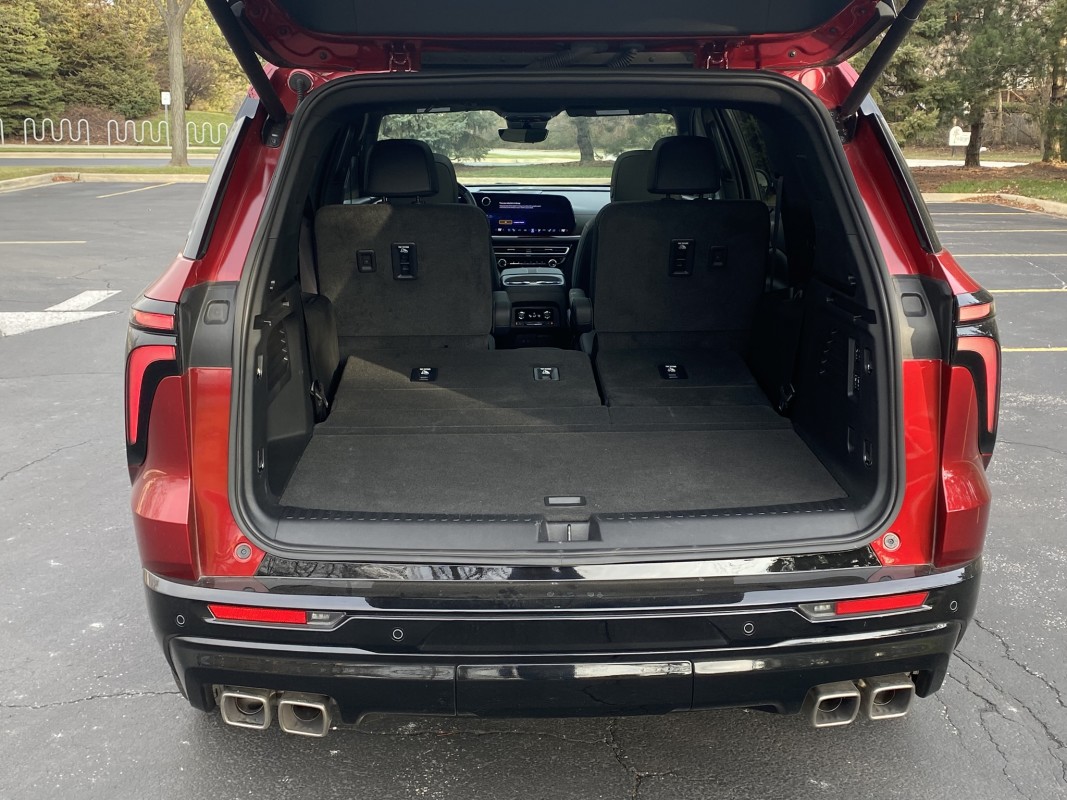
Amos Kwon
How are they different?
The Ford is smaller, and a bit more sporty. On the other hand, while the Chevrolet is larger, it’s more spacious and has a sweet highway ride. The story truly takes shape inside where the Explorer confines are a tight 85.8 cu.-ft. of maximum cargo space. Inside the Traverse, you get a best-in-class 98 cu.-ft. of cargo space.
The Ford Explorer can hold up to seven passengers, whereas the Chevrolet Traverse can hold up to eight. Mind you that both of these vehicles require a certain package/trim choice to get the maximum seating.
Ford gives you two engine choices, the I4 turbo, and a twin-turbo V6. Chevrolet only offers the I4 turbo. If you get the Z71 package (my favorite among the other Traverse models) you get a twin-clutch coupler, which gives you more options for directing torque aft when the going gets rough.
Both vehicles have augmented cruise controls (“Blue Cruise” and “Super Cruise”), which are available on higher trims. GM’s system is superior, but Ford’s recent updates are supposed to be a big leap in the right direction.

Ford

Chevrolet
Related: Audi reveals sporty new A5/S5 with an emphasis on design
Behind the wheel they are nothing alike
The Ford Explorer feels like a tall wagon on the road. The overall sensation reminds me of a solid chunk of steel surrounding you. It’s like a vault, and definitely not like Ford Explorers of the past. There’s plenty of power driving Ford’s 2.3-liter turbo, but the 3.0-liter V6 is the one you want. It rips!
Oddly, Ford discontinued its off-road-themed Explorer Timberline, which would have directly competed against the Traverse Z71. To me, that means that the Explorer ST-Line and ST compete against the Chevrolet Traverse RS, which is a mixed bag.
Don’t get me wrong, the Traverse RS is a nice ride. It has some nice bits and giant wheels to satisfy some consumers, but the Ford Explorer ST is much faster. On the other hand, the Ford Explorer ST-Line has less power than the Traverse RS, although its RWD powertrain makes for a more dynamic handling vehicle.
The Traverse has a slightly more truck-like overall feel. That’s especially true for the taller Z71, but even the RS feels like that. It still handles well and is brilliant on the highway, it just feels bigger in every way, which can be either good or bad.
Neither is underpowered, and neither vehicle is unattractive. I dare say that both have a macho swagger that’s especially noticeable on their higher trims. Both are also more enjoyable to drive than many of their competitors.
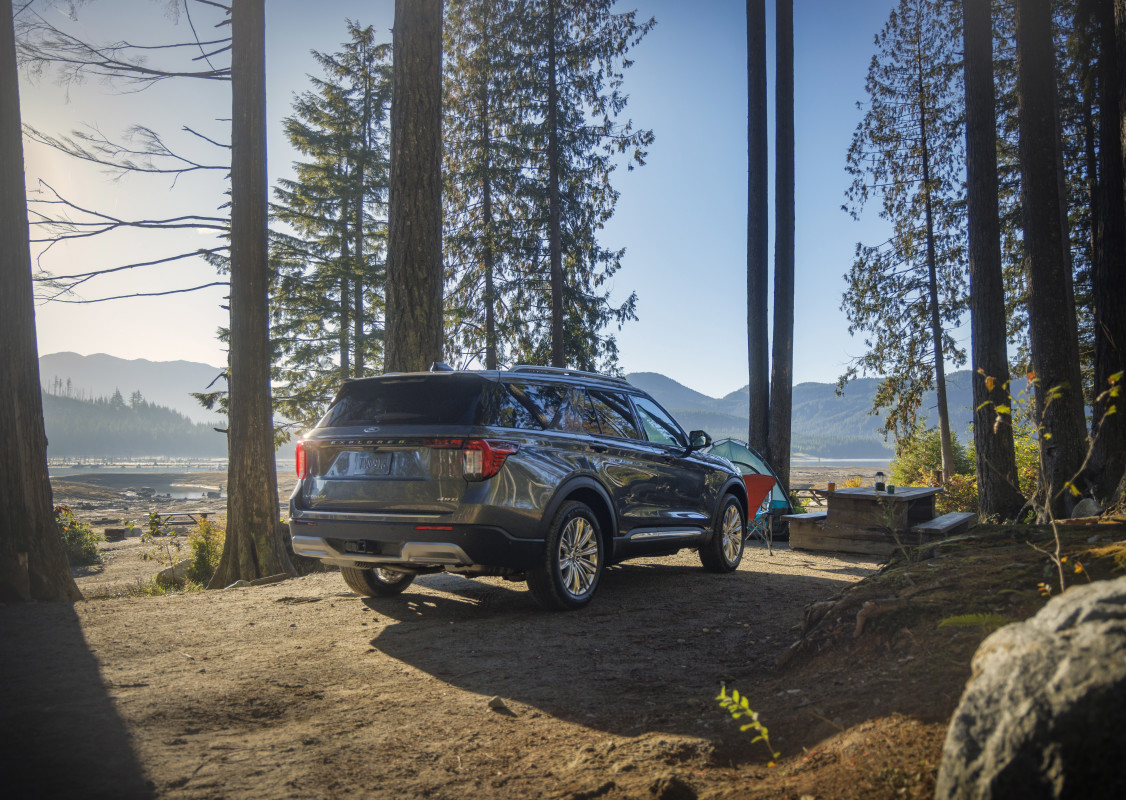
Ford

Amos Kwon
Final thoughts
I think family types who don’t want a truck-based SUV like a Tahoe, Sequoia or Expedition might prefer the Chevrolet Traverse. It’s a more comfortable ride for the family, and the ZR1 is a pretty good bargain for folks who want to dabble with moderate trails on the side.
On the other hand, the Ford Explorer is a much more athletic vehicle on the tarmac. It makes you feel more isolated, like you’re in a car rather than an SUV. It hunkers down in the corners, feels more responsive, and is remarkably quick with the V6.
Either vehicle offers a lot of tech for the money and looks great despite being completely distinctive. I highly recommend testing both side by side before whipping out the checkbook.
Love reading Autoblog? Sign up for our weekly newsletter to get exclusive articles, insider insights, and the latest updates delivered right to your inbox. Click here to sign up now!
Related: Hyundai reveals stunning IONIQ 9 with over 330 miles of range

